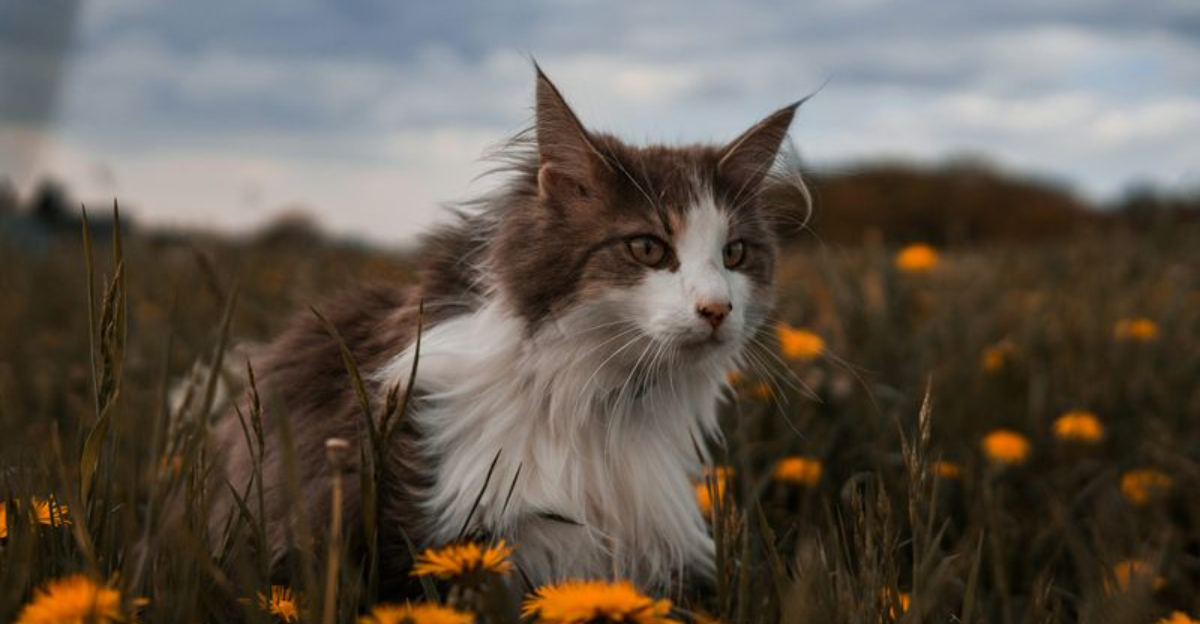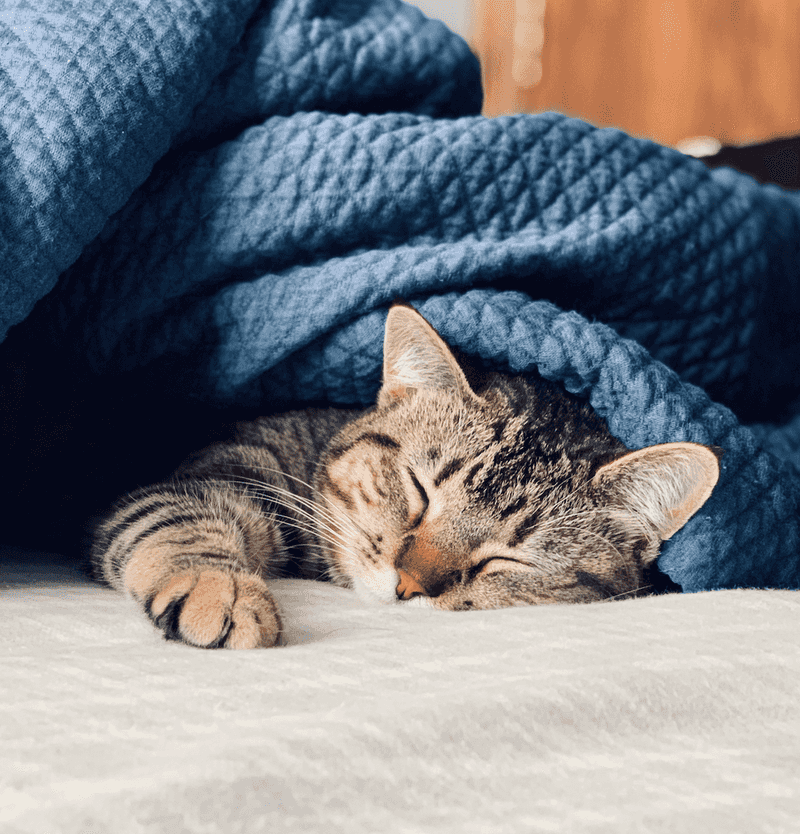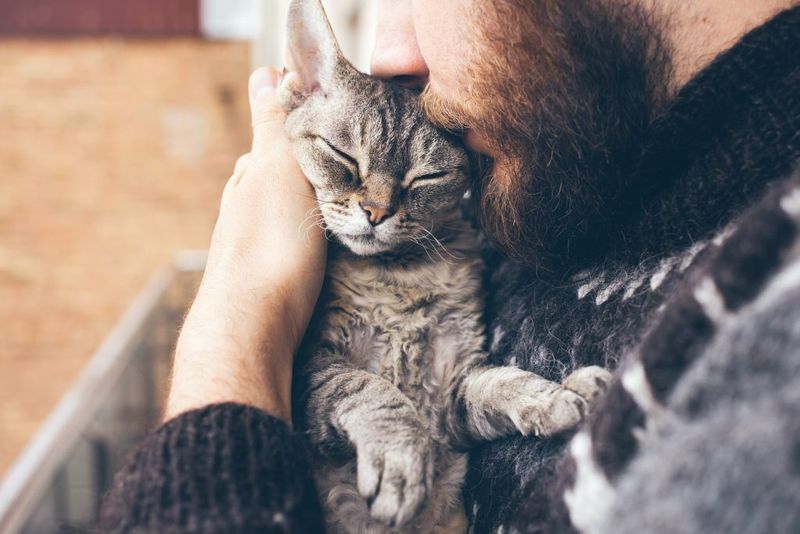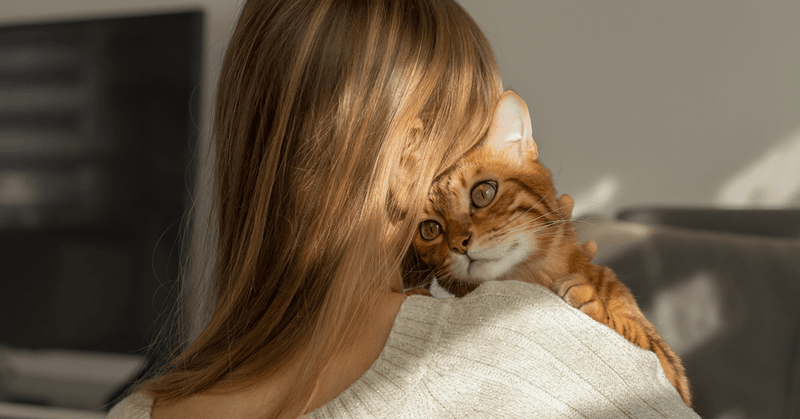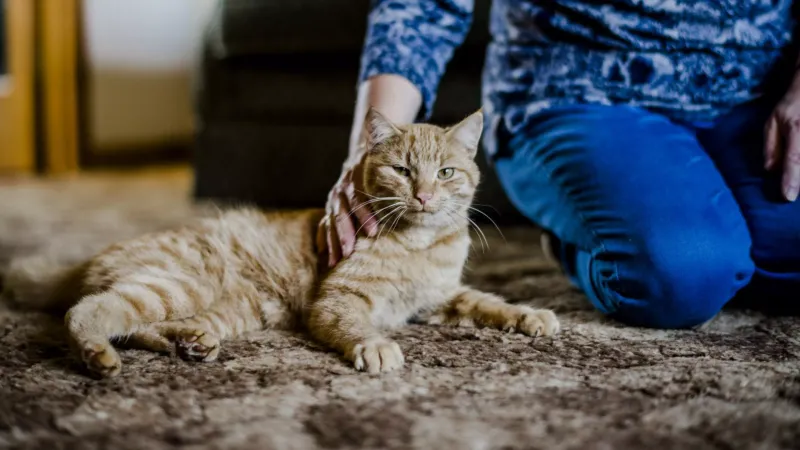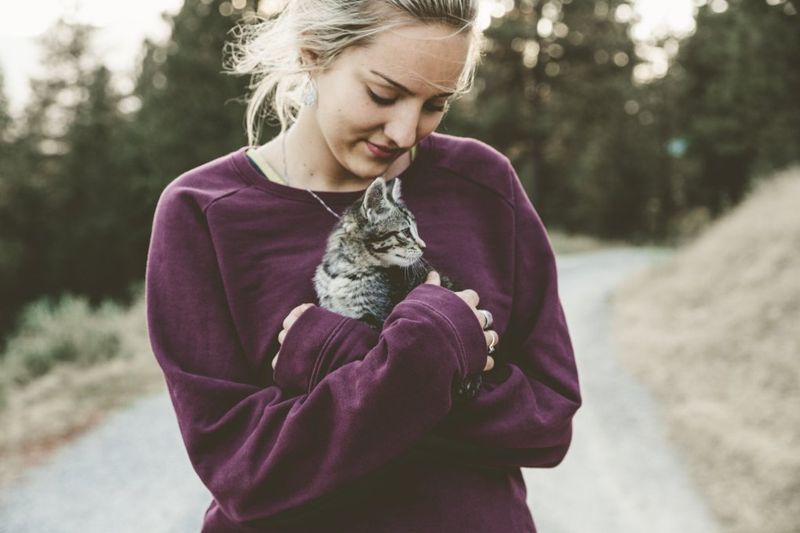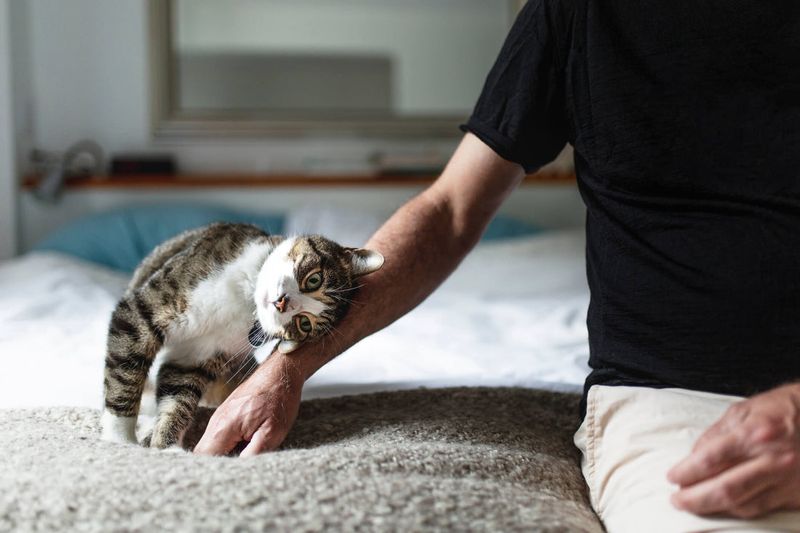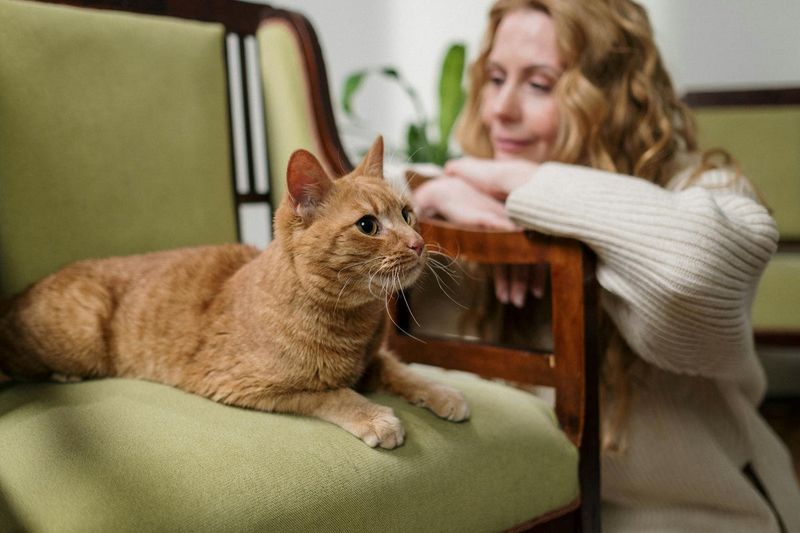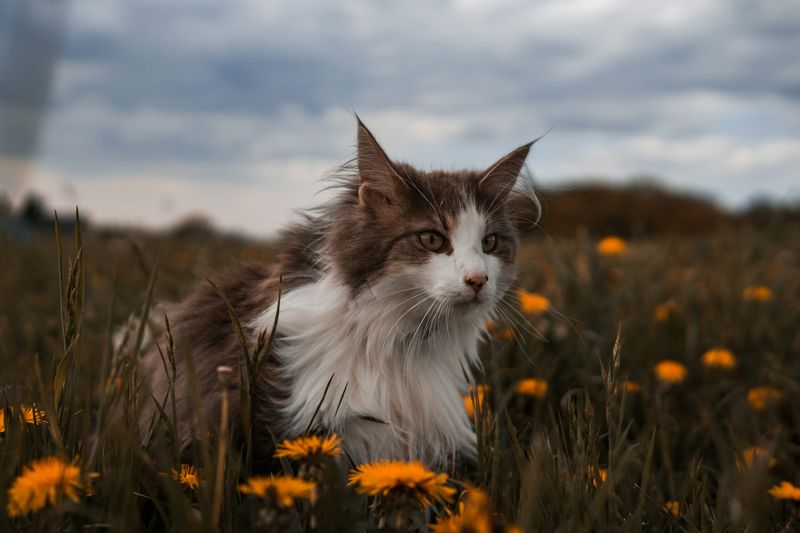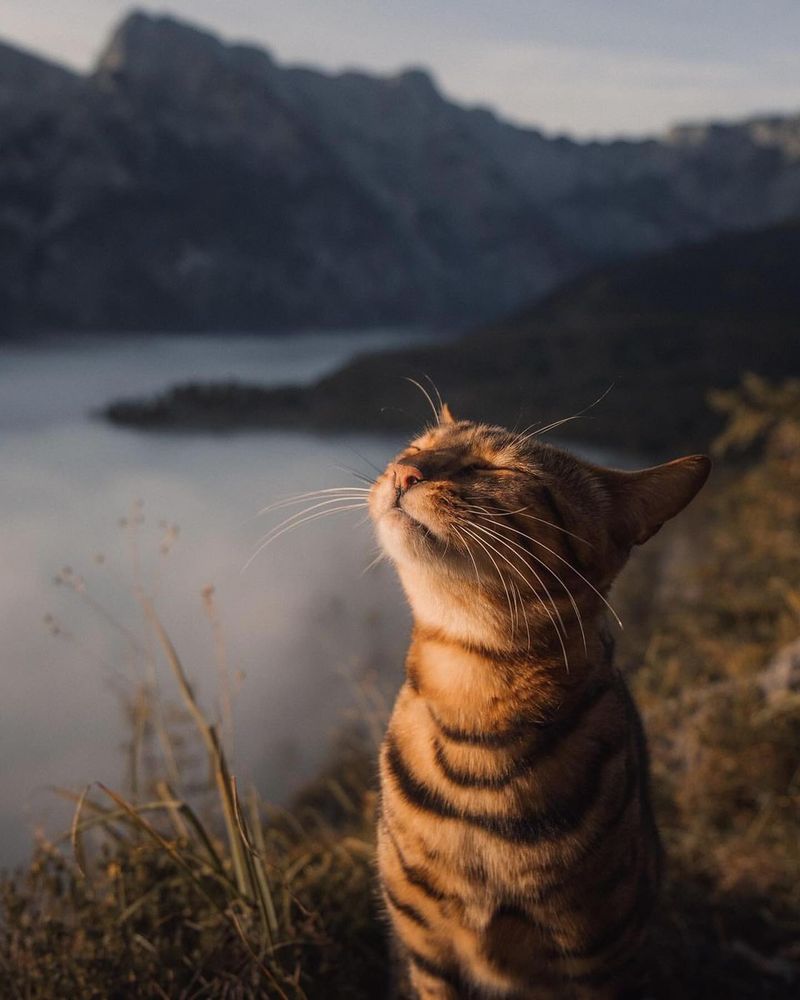📖 Table of Content:
- 1. Purr Therapy That Soothes Raw Emotions
- 2. Consistent Routine When Life Feels Chaotic
- 3. Physical Contact Without Emotional Demands
- 4. Silent Understanding That Transcends Words
- 5. Permission to Experience Joy Again
- 6. Redirected Focus When Thoughts Spiral
- 7. Unconditional Acceptance of Emotional Messiness
- 8. Living Reminders That Life Continues
- 9. Bridge to the Person You’ve Lost
Losing someone we love creates a void that seems impossible to fill. During these dark times, our feline friends often become unexpected sources of comfort and healing. Cats possess an intuitive ability to sense emotional pain, offering their unique brand of support when we need it most. Their silent companionship can be a powerful force in navigating the complex journey of grief.
1. Purr Therapy That Soothes Raw Emotions
Cat purrs vibrate at frequencies between 25 and 150 Hz, which scientists have discovered can promote healing and reduce stress. The gentle rumble of a cat purring against your chest creates a natural form of sound therapy that calms your nervous system.
During grief, these vibrations work like an emotional balm, lowering blood pressure and releasing tension from your body. Your cat might instinctively curl up closer when you’re crying or distressed.
Many grieving people report that their cat’s purring was the first thing that brought moments of peace amid overwhelming sadness. This natural feline superpower requires no effort yet delivers powerful physiological benefits.
2. Consistent Routine When Life Feels Chaotic
Grief throws life into disarray, but your cat’s predictable schedule anchors you to reality. Their persistent morning meows for breakfast force you to get out of bed when depression makes it nearly impossible.
Cats thrive on routine and inadvertently create structure when you might otherwise neglect self-care. The simple acts of filling water bowls, changing litter, and providing meals establish touchpoints throughout your day.
This gentle accountability prevents complete withdrawal that often accompanies profound loss. Your cat doesn’t care about your puffy eyes or unwashed hair—they just want their dinner at 6 PM, creating normal moments within your grief journey.
3. Physical Contact Without Emotional Demands
Human touch is healing but often comes with expectations for conversation or emotional reciprocity that feel overwhelming during grief. Cats offer physical contact without demanding anything in return.
The weight of a cat on your lap provides comforting pressure therapy similar to weighted blankets. Their warm body against yours releases oxytocin—the bonding hormone—without requiring you to explain your feelings or put on a brave face.
Unlike well-meaning friends who might tire of your grief, cats maintain a consistent physical presence. Their fur absorbs countless tears, their bodies curl perfectly into empty spaces beside you, providing touchstone comfort when human interaction feels too complicated.
4. Silent Understanding That Transcends Words
Cats possess an uncanny ability to sense emotional distress without needing explanations. Their quiet presence beside you acknowledges your pain without the awkward platitudes that often accompany human comfort attempts.
During grief, words frequently fall short or even hurt. Your cat offers judgment-free companionship, never telling you to “move on” or questioning why you’re still grieving. Their eyes meet yours with acceptance of whatever emotional state you’re experiencing.
Many grieving cat owners report their felines stayed closer during their darkest moments. This silent understanding creates safe space for authentic grieving without social pressure to appear “better” before you actually are.
5. Permission to Experience Joy Again
By fully embracing the present, cats teach us how to find comfort in simple pleasures. In moments of sadness, their spontaneous play can bring an unexpected smile.
Watching your cat chase a toy or perform comical acrobatics creates brief respites from grief’s heaviness. These moments don’t dismiss your loss but provide necessary emotional balance. Many grieving people report feeling guilty about experiencing happiness after loss.
Your cat’s spontaneous play invitations offer permission to step away from sorrow temporarily. This natural oscillation between grief and moments of lightness is actually healthier than unrelenting sadness, helping you process emotions without becoming completely overwhelmed.
6. Redirected Focus When Thoughts Spiral
When grief leads to overwhelming mental loops, your cat’s simple needs—like feeding or attention—can ground you, offering natural breaks from painful thoughts.
When your cat knocks something off a shelf or demands attention, your brain must temporarily shift focus. This micro-break from rumination can be profoundly therapeutic, giving your nervous system necessary recovery time.
Caring for another living being provides purpose when meaning seems lost. The responsibility of keeping your cat healthy offers anchor points when everything else feels adrift. Their simple needs become compass points guiding you through grief’s disorienting fog.
7. Unconditional Acceptance of Emotional Messiness
Unlike people, cats aren’t unsettled by emotional outbursts. Whether you’re crying or angry, they stay close without judgment or discomfort.
This acceptance creates rare emotional safety during grief’s unpredictable waves. You never need to hide your feelings or appear “stronger” for your cat’s benefit. They simply adjust their position against you, sometimes offering a gentle paw or increased purring during intense moments.
Their unwavering presence validates all emotions as natural, countering societal pressure to grieve “appropriately.” This judgment-free zone becomes crucial healing space where authentic processing can occur without fear of alienating others or appearing unstable.
8. Living Reminders That Life Continues
Through their ability to adapt, cats demonstrate quiet strength. Even after difficult pasts, many rescue cats continue to trust, love, and enjoy life—without needing to erase what they’ve been through.
Their consistent needs gently pull you forward when grief makes you want to freeze time. Your cat doesn’t understand why you’re suffering, but their ongoing life requirements prevent complete withdrawal from living.
The natural rhythm of their days—sleeping, playing, eating, grooming—demonstrates life’s persistence even after devastating loss. Their warm presence beside you becomes living proof that comfort can exist alongside grief, that both realities can occupy the same space without canceling each other.
9. Bridge to the Person You’ve Lost
For many, pets shared with departed loved ones become living connections to precious memories. Your cat, who knew the person you’re grieving, holds shared history that no one else possesses.
Watching your cat curl up in your loved one’s favorite chair or play with toys they once selected creates bittersweet moments of connection. These cats often become treasured links, having been touched by the same hands you miss so desperately.
Some grieving people report finding comfort in caring for a pet that was beloved by someone now gone. The continued relationship honors what was lost while creating new bonds. Your cat becomes both a memory keeper and a companion for the journey forward.
